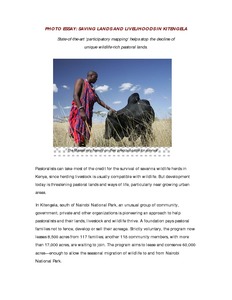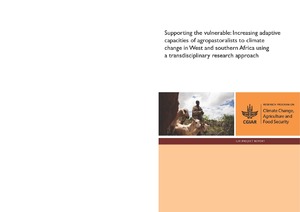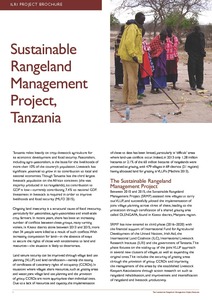Socio-economic characteristics and perceptions of cattle keepers and constraints to cattle production in western Kenya
A cross-sectional survey was done in two Districts in Western Kenya to determine the socio-economic characteristics and perceptions of the cattle types kept. This involved socio-economic profiles of households, herd structure, reasons for keeping specific types of cattle and production and marketing constraints together with desired policy interventions to address the constraints. A total of 210 farmers randomly selected were interviewed. The data was analysed using Statistical Analysis System program. The majority of farmers (84%) were males.
Socioeconomic factors affecting livestock water productivity in rainfed pastoral production systems
Some aspects and implications of the development of grazing blocks in northern province, Kenya
Organizational and management problems associated w. development of grazing blocks in north eastern kenya w. spec. ref. to the Somali pastoralists and their socioeconomic organization.
Supporting the vulnerable: Increasing adaptive capacities of agropastoralists to climate change in West and southern Africa using a transdisciplinary research approach
The world’s climate is changing rapidly and Africa will be severely affected by this, not only because of the effects on ecosystems but also because of the low adaptive capacity of communities due to poverty and lack of infrastructure, services, and appropriate policies to support adaptation strategies. A large share of Africa’s poor are dependent on livestock for some part of their livelihoods, most of these living in smallholder, rainfed mixed systems and pastoral systems, where livestock play a key role as assets providing multiple economic, social, and risk management functions.
Tangible gifts: when the (14) cows come home
Surviving the drought in Kenya
The 2009 drought in Kenya has had a devastating effect on pastoralists. Hundreds of thousands of cattle died and with them a way of life that had provided families a livelihood from the land. We met Lawrence in a quarry just out of of Nairobi. For many generations his family have reared cattle on the rangelands of Kitengela. Now he shifts rocks in order to pay his way through University and the dream of a better life. This photofilm was made by duckrabbit during duckrabbit training productions for ILRI in Nairobi August 2010. Photos (c) David White.









